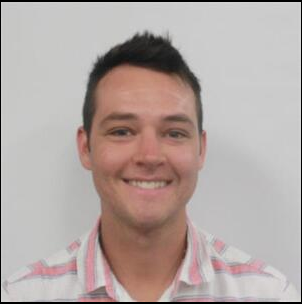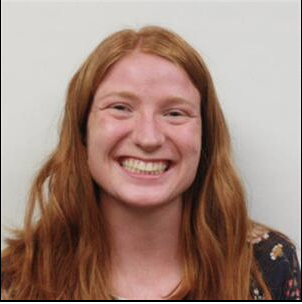Location
223 EB
Time
- Sec. 1: Monday 1:00-1:50
- Sec. 2: Monday 2:00-2:50
- Sec. 3: Monday 3:00-3:50
- Sec. 5: Tuesday 1:00-1:50
Prerequisites
- ChEn 273
- ChEn 374 (or concurrent enrollment)
Website
The course website is ignite.byu.edu/che285
- Link to the department Fundaments Lab website
Instructors
David O. Lignell
330T Engineering Building
801-422-1772
davidlignell@byu.edu
Office hours (general): T, W, Th 4:00-5:00 pm
Clint Guymon
330C Engineering Building
801-422-8547
clintguymon@byu.edu
Office hours (general): M, W 11:00-12:00 pm
TAs
Objectives
This course is the first of a sequence of four half-credit lab classes Each of these lab classes is associated with two core chemical engineering courses. We hope students experience deeper learning by hands-on experiences spread throughout the curriculum, rather than at the end. Your skills and confidence as an engineer will grow with your abilities to tackle new and important problems. Specific course competencies are listed below.
This class should require about two hours per week: one hour in the lab and up to one hour out of class preparing for the next week’s lab or completing a lab report that was not finished in the allotted lab period.
Textbook
There is no textbook. Notes and online materials will be used.
Lab Reports
Lab reports are available online. Printed handouts will be provided. Planning and carrying out the data collection are done as a team. The lab report is to be completed and turned in individually.
- When you put your name on an assignment, you are representing it as your own work. Laboratory data is to be collected and analyzed as a group, but lab reports are to be completed and submitted individually. The data presented in your report should be data collected by you and members of your team while you were present.
- Please be aware that it is not appropriate for the TAs to simply provide answers or work the problems for you. We want to help you learn, but we will primarily provide guidance, ideas, and techniques.
- Assignments will be turned in electronically as a single file in order to be graded and receive credit.
- Adobe Scan is recommended for this.
- Lab reports are due one week from the date of the lab as listed on the Learning Suite submission site. Labs are due at 10:00 pm. Labs submitted later than 11:00 pm will be accepted up to one week late for half credit.
Safety and Lab Hygeine
Safety and Lab Hygeine. Failure to follow safe practices, clean up your messes, or properly operate or shut down equipment will negatively affect your grade. Come dressed appropriately with long pants and closed-toe shoes every time. Immediately put on safety glasses when you enter the lab.
Final Exam
There will be an online exam at the end of the semester for you to demonstrate your knowledge of engineering principles. A passing grade is required in order to pass the class. Other quizzes may be administered during the semester.
Attendance and Participation.
We do not take roll in this class. However, missing even one lab can have a significant negative effect on your final grade. If, due to illness or other instructor-approved reason, you expect to miss your weekly scheduled lab, contact me as soon as possible and we will try to find a remedy. Because labs are intended to be done as a group and must be done with TA supervision, there is no guarantee that a make-up lab will be possible, though we will try.
Grading
Grades for the course will be based on the following distribution:
- Lab reports: 85%
- Final exam: 15%
Grade scale: A ≥ 95%; A- ≥ 90%; B+ ≥ 87%; B ≥ 83%; B- ≥ 80%; etc.
Course materials
The BYU policy on use of course materials states: “All course materials (e.g., outlines, handouts, syllabi, exams, quizzes, PowerPoint presentations, lectures, audio and video recordings, etc.) are proprietary. Students are prohibited from posting or selling any such course materials without the express written permission of the professor teaching this course. To do so is a violation of the Brigham Young University Honor Code.”
Course Outcomes
#### Experimentation and Analysis (ABET Student Outcome 6) Students will be able to develop and conduct appropriate experimentation, analyze and interpret data, and use engineering judgment to draw conclusions. #### Critical Thinking (BYU Course Objective) Students will exhibit critical and creative thinking skills for analysis and evaluation of problems and cause-effect relationships. #### Engineering Intuition (BYU Course Objective) Students will be able to make order of magnitude estimates, assess reasonableness of solutions, and select appropriate levels of solution sophistication. #### Process Variables (BYU Course Objective) Students will understand process variables (e.g., P, T, flow rate, conc.) including procedures and equipment for their measurement. #### Molecular-level Understanding (BYU Course Objective) Students will be able to explain how molecular and continuum phenomena give rise to macroscopic behavior, processes, and properties. #### Process Equipment (BYU Course Objective) Students will be able to explain and operate real process equipment.
BYU Policy Statments
Academic Honesty
The first injunction of the BYU Honor Code is the call to be honest. Students come to the university not only to improve their minds, gain knowledge, and develop skills that will assist them in their life’s work, but also to build character. President David O. McKay taught that “character is the highest aim of education” (The Aims of a BYU Education, p. 6). It is the purpose of the BYU Academic Honesty Policy to assist in fulfilling that aim. BYU students should seek to be totally honest in their dealings with others. They should complete their own work and be evaluated based upon that work. They should avoid academic dishonesty and misconduct in all its forms, including but not limited to plagiarism, fabrication or falsification, cheating, and other academic misconduct.
Honor Code
In keeping with the principles of the BYU Honor Code, students are expected to be honest in all of their academic work. Academic honesty means, most fundamentally, that any work you present as your own must in fact be your own work and not that of another. Violations of this principle may result in a failing grade in the course and additional disciplinary action by the university. Students are also expected to adhere to the Dress and Grooming Standards. Adherence demonstrates respect for yourself and others and ensures an effective learning and working environment. It is the university’s expectation, and every instructor’s expectation in class, that each student will abide by all Honor Code standards. Please call the Honor Code Office at 422-2847 if you have questions about those standards.
Preventing and Responding to Sexual Misconduct
The health and well-being of students is of paramount importance at Brigham Young University. If you or someone you know has experienced sexual harassment (including sexual violence), there are many resources available for assistance.
In accordance with Title IX of the Education Amendments of 1972, BYU prohibits unlawful sex discrimination, including sexual harassment, against any participant in its education programs or activities. The university also prohibits sexual harassment by its personnel and students. Sexual harassment occurs when
- a person is subjected to unwelcome sexual speech or conduct so severe, pervasive, and offensive that it effectively denies their ability to access any BYU education program or activity;
- any aid, benefit, or service of BYU is conditioned on a person’s participation in unwelcome sexual conduct; or
- a person suffers sexual assault, dating violence, domestic violence, or stalking on the basis of sex.
University policy requires all faculty members to promptly report incidents of sexual harassment that come to their attention in any way, including through face-to-face conversations, a written class assignment or paper, class discussion, email, text, or social media post. Incidents of sexual harassment should be reported to the Title IX Coordinator at t9coordinator@byu.edu or (801) 422-8692 or 1085 WSC. Reports may also be submitted online at https://titleix.byu.edu/report or 1-888-238-1062 (24-hours a day).
BYU offers confidential resources for those affected by sexual harassment, including the university’s Sexual Assault Survivor Advocate, as well as a number of non-confidential resources and services that may be helpful. Additional information about Title IX, the university’s Sexual Harassment Policy, reporting requirements, and resources can be found at http://titleix.byu.edu or by contacting the university’s Title IX Coordinator.
Student Disability
Brigham Young University is committed to providing a working and learning atmosphere that reasonably accommodates qualified persons with disabilities. A disability is a physical or mental impairment that substantially limits one or more major life activities. Whether an impairment is substantially limiting depends on its nature and severity, its duration or expected duration, and its permanent or expected permanent or long-term impact. Examples include vision or hearing impairments, physical disabilities, chronic illnesses, emotional disorders (e.g., depression, anxiety), learning disorders, and attention disorders (e.g., ADHD). If you have a disability which impairs your ability to complete this course successfully, please contact the University Accessibility Center (UAC), 2170 WSC or 801-422-2767 to request a reasonable accommodation. The UAC can also assess students for learning, attention, and emotional concerns. If you feel you have been unlawfully discriminated against on the basis of disability, please contact the Equal Opportunity Office at 801-422-5895, eo_manager@byu.edu , or visit https://hrs.byu.edu/equal-opportunity for help.
Inappropriate Use of Course Materials
All course materials (e.g., outlines, handouts, syllabi, exams, quizzes, PowerPoint presentations, lectures, audio and video recordings, etc.) are proprietary. Students are prohibited from posting or selling any such course materials without the express written permission of the professor teaching this course. To do so is a violation of the Brigham Young University Honor Code.


